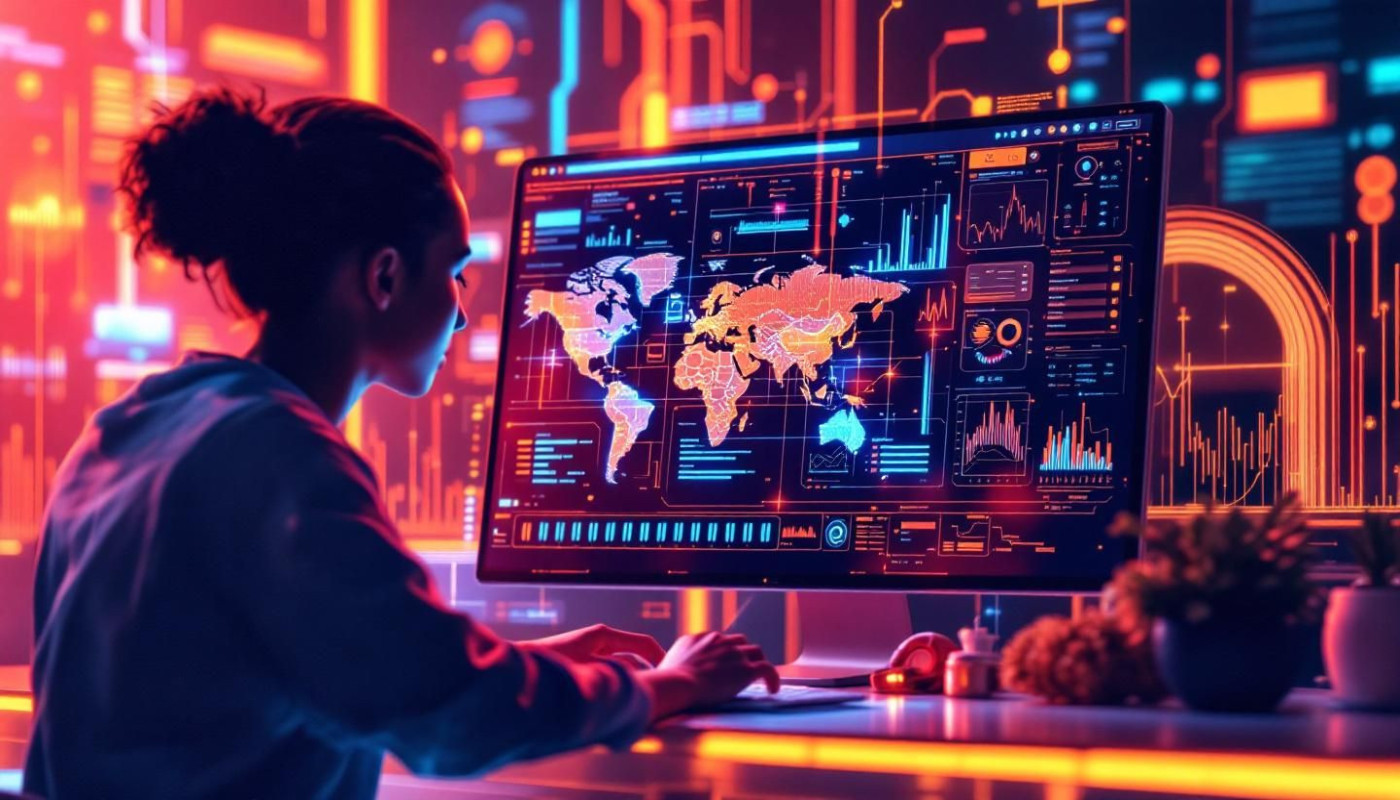Table of contents
As cities continue to expand and evolve, the integration of Artificial Intelligence (AI) into urban development is revolutionizing the way we design and utilize our urban spaces. AI's ability to process vast amounts of data and generate optimized solutions is transforming the landscape of city planning and architecture. This cutting-edge approach, known as generative design, is not just optimizing the form and function of urban environments—it's reshaping the very fabric of city life. Explore how generative design is paving the path for smarter, more efficient, and sustainable urban futures, and why it may hold the key to the cities of tomorrow.
The Emergence of Generative Design in Urban Planning
Generative design stands at the forefront of innovation in urban planning, bringing with it a transformative approach to the development of our cities. This method utilizes sophisticated algorithms to produce a plethora of design options that adhere to predetermined goals and limitations. These algorithms are a form of parametric modeling, a technical term that refers to the process of using parameters or variables to influence the design generation. By inputting various factors such as local zoning laws, environmental constraints, and community needs, generative design tools can quickly iterate through countless configurations to find the most effective solutions. The integration of this technology into urban development enables planners to optimize land use, enhance infrastructure, and promote sustainability more efficiently than ever before.
Urban development algorithms driven by generative design are key in tackling complex spatial challenges, ensuring that every square inch of a development is used to its full potential while respecting environmental and social guidelines. For those interested in understanding the deep impact of this approach, speaking with an urban planner or an AI architect with extensive experience in generative design can offer valuable insights into its practical applications. These professionals can elucidate how generative design is not merely a tool for efficiency but a paradigm shift in planning that emphasizes adaptive, resilient, and sustainable urban spaces. For a deeper exploration into the world of generative design and its role in shaping the future of urban landscapes, visit this link and learn how one platform is paving the way for this innovative process.
The Role of Data in Shaping Cities
In the realm of data-driven urban design, the advent of AI and Big Data analytics has been transformative. By sifting through vast datasets, AI empowers urban planners with insights into demographic trends, which aid in forecasting population growth patterns and shifts, thereby ensuring that new developments cater to emerging needs. Not only does this include residential and commercial demands, but also the socio-cultural dynamics that define the pulse of a city. In parallel, environmental data analysis plays a significant role in creating adaptive urban spaces, with AI systems analyzing climatic conditions, air quality indexes, and resource consumption patterns to propose sustainable and resilient urban designs. Economic factors are not left behind; AI harnesses information on employment rates, income distribution, and industry growth to shape urban areas that can thrive economically. All these facets of data come together to form a foundation for decision-making processes that aim to generate urban environments capable of adapting to the evolving requirements of their citizens. For an expert perspective, a data scientist specializing in urban analytics could provide deeper insight into how these interwoven data threads are orchestrated by AI to craft the fabric of future cities.
Enhancing Sustainability through AI
In the realm of sustainable urban development, AI has emerged as a powerful ally. Generative design, enabled by sophisticated algorithms, is revolutionizing how cities can grow with minimal environmental impact. By harnessing AI, urban planners can produce myriad design solutions that prioritize energy efficiency. This is achieved through the optimization of buildings and infrastructure to reduce energy consumption and incorporate renewable resources effectively. Furthermore, generative design excels in waste reduction, allowing for the precise calculation of materials needed, thereby diminishing excess and promoting a more efficient use of resources. The significance of such sustainable practices cannot be overstated as they are fundamental in protecting the longevity and health of urban environments. An understanding of environmental impact assessment is necessary here, as this technical term refers to the systematic analysis of the possible adverse environmental effects of a planned project or design. To delve deeper into the nuances of how generative design can influence sustainability, insights from an environmental engineer specializing in sustainable design are invaluable. Their expertise sheds light on the intricate balance between urban expansion and the imperative to maintain ecosystems and conserve resources for future generations.
Improving Urban Quality of Life with AI
Urban environments stand on the cusp of a transformative era with AI-driven urban design leading the charge towards a future of inclusive design. By leveraging generative design, cities can spawn accessible public spaces that cater to the diverse needs of their inhabitants. With the analytical prowess of artificial intelligence, urban planners are able to simulate and evaluate countless variations of spatial planning, ensuring that parks, walkways and communal areas are optimized for universal access. Advanced algorithms can also significantly enhance improved transportation systems, streamlining traffic flow, minimizing congestion, and proposing infrastructure that supports a range of mobility options.
Better housing solutions are another area where AI's impact is tangible, enabling the development of affordable and sustainable living spaces that are integrally connected to the urban fabric. AI's predictive analysis and model testing can result in residential areas that are not only energy-efficient but also culturally attuned to the needs of residents. Moreover, thoughtful AI-driven urban design has the potential to bridge social economic disparities, creating environments that promote equal opportunities for all citizens. By consulting with urban sociologists and community planners, the application of AI in urban development can be grounded in social science, ensuring that the human dimension informs every aspect of the generative design process.
Challenges and Future Prospects for AI in Urban Development
AI implementation challenges in urban development often stem from technological limitations that currently restrict the complexity and scale of projects that can be undertaken. Privacy concerns in AI also loom large, as the integration of AI into urban development involves the collection and analysis of large quantities of data, raising questions about surveillance and the ethical use of personal information. Moreover, the success of AI and generative design in this field relies on cross-disciplinary collaboration, necessitating a harmonious blend of expertise from urban planners, data scientists, policymakers, and community stakeholders. Looking toward the horizon, the future of urban planning appears poised for a significant transformation, with AI technological advancements enabling more sophisticated and responsive smart city infrastructure. For a deeper insight into this potential, a futurist with expertise in urban technologies might forecast the emergence of fully integrated systems capable of dynamic adaptation to environmental changes, resource management, and the evolving needs of urban populations, thereby shaping the cities of tomorrow with unprecedented precision and foresight.
On the same subject

How Effective Are Hybrid Strategies In Kubernetes Upgrades?

How Custom Software Development Is Driving Innovation In Healthcare

Exploring Ethical Considerations In The Deployment Of AI-driven Chatbots

Exploring The Efficiency Of AI In Streamlining Logo Design Processes

How Generative AI Is Transforming Customer Service Efficiency

How To Enhance Your Website's Performance With Specialized SEO Tools

Exploring Alternative Digital Payment Solutions For Charitable Organizations

The Impact Of AI On 3D Modelling: Changing The Landscape Of Computer-Assisted Design

Comparing Traditional Graphic Design Software With AI Image Generation

Moving Beyond Passwords: The Rise of Biometric Authentication

